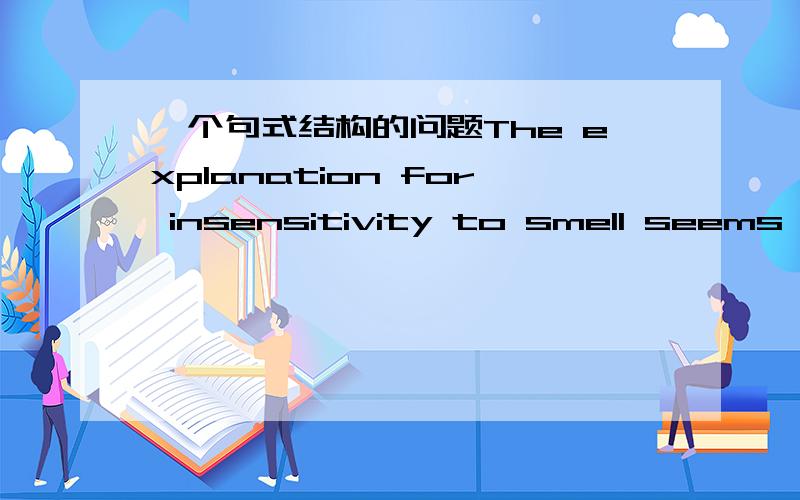一个句式结构的问题The explanation for insensitivity to smell seems to be that brain finds 【it】 inefficient to keep all smell receptors working all the time but can create new receptors if necessary在这句话中我知道【it】是形
来源:学生作业帮助网 编辑:作业帮 时间:2024/11/16 20:56:57

一个句式结构的问题The explanation for insensitivity to smell seems to be that brain finds 【it】 inefficient to keep all smell receptors working all the time but can create new receptors if necessary在这句话中我知道【it】是形
一个句式结构的问题
The explanation for insensitivity to smell seems to be that brain finds 【it】 inefficient to keep all smell receptors working all the time but can create new receptors if necessary
在这句话中我知道【it】是形式宾语,真正宾语是【to keep all smell receptors working all the time】,inefficient是宾补
但是我有疑问,这句话【but】后面的内容从语义上来看,是很容易看出来和前面的内容是没关系的,应该先说 【全天候保持所有的嗅觉感官是无效的】,再说后面的【如果需要会创造出新的器官】
但是如果在语义不太明确的句子中,我觉得自己很可能就会把【to keep all smell receptors working all the time but can create new receptors if necessary】全当做【it】指代的内容了
请问有什么辨别方式么?
一个句式结构的问题The explanation for insensitivity to smell seems to be that brain finds 【it】 inefficient to keep all smell receptors working all the time but can create new receptors if necessary在这句话中我知道【it】是形
CAN是情态动词,这个时候你应该找他的主语,找到brain就可以得出can和finds的地位一样是谓语成分,主要对应上主谓宾这些主要结构就行了.